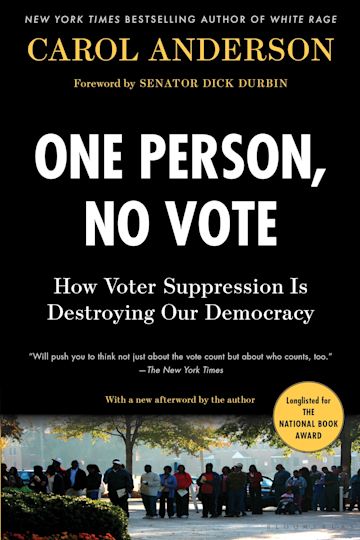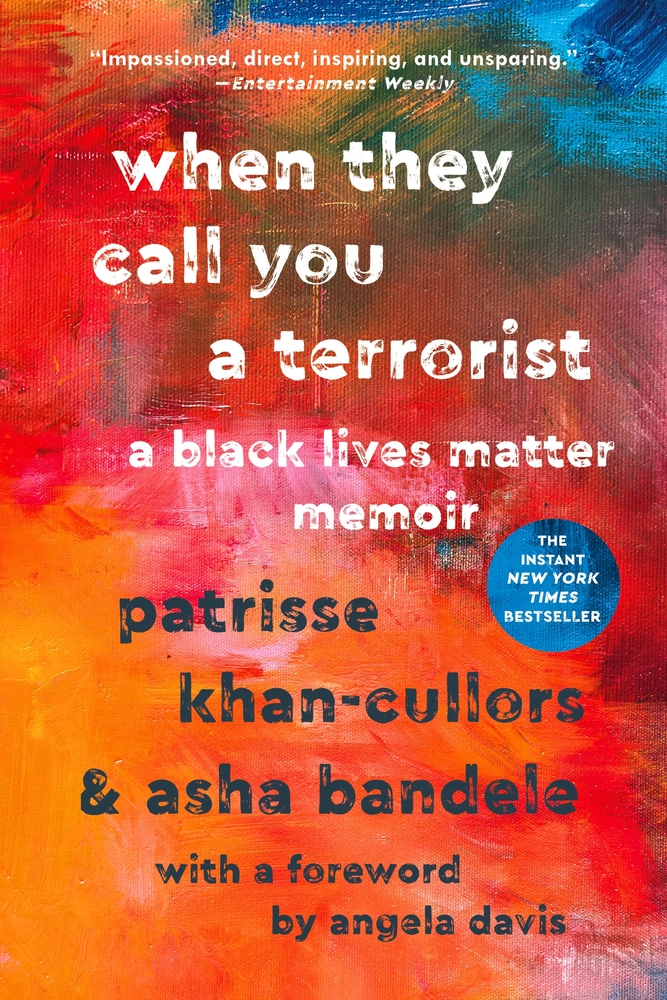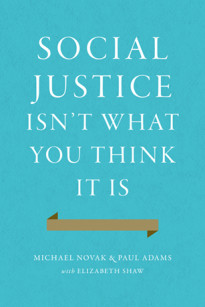Teaching and Learning About Martin Luther King Jr. with the New York Times
By The Learning Network — 2020
How do you celebrate and teach the legacy of Martin Luther King Jr., both on the holiday that celebrates his birth, and all year long?
YOU MIGHT ALSO LIKE
CLEAR ALL
BY TOPIC
BY TEACHER
BY TYPE
FILTER

TOPIC
- BIPOC Well-Being (87)
- Racial Healing (86)
- Black Well-Being (78)
- Racial Discrimination (75)
- Social Responsibility (50)
- Poverty/Economic Inequality (47)
- Spirituality and Politics (42)
- Environmental Justice (36)
- Economic Justice (34)
- Life Challenges (32)
- Trauma Healing (31)
- Healing Approaches (29)
- Fellowship and Community (28)
- Gender Justice (26)
- Nonviolence (26)
- Racial Identity (26)
- Whiteness (26)
- Resilience (24)
- Youth Activism (24)
- Climate Change (23)
- Cross-Cultural Dynamics (23)
- Self-Care (23)
- Incarceration (22)
- Mindfulness (22)
- Global Challenges (21)
- Women’s Well-Being (21)
- Collective Trauma (18)
- Empowerment (18)
- Communication Skills (17)
- Female Empowerment (17)
- Freedom (17)
- LGBTQIA Well-Being (17)
- Christianity (16)
- Feminism (16)
- Self-Healing (16)
- Transformation (16)
- Women’s Rights (16)
- Compassion (15)
- Connection with Nature (15)
- Speaking Your Truth (15)
- Courage (14)
- Gender Discrimination (14)
- Leadership (14)
- Memoir (14)
- Buddhism (13)
- Inner Life (13)
- Interdependence (13)
- Masculine/Feminine Dynamics (12)
- Sustainability (12)
- Hope (11)
- Identity (11)
- Imagination and Creativity (11)
- Love (11)
- AAPI Well-Being (10)
- Access to Education (10)
- Building Culture (10)
- Human Potential (10)
- Immigration and Assimilation (10)
- Self-Discovery (10)
- Unity (10)
- Ecospirituality (9)
- Environmental Exploitation (9)
- Higher Calling (9)
- Inner Peace (9)
- Intergenerational Trauma (9)
- LGBTQIA Sexuality (9)
- Offering Support to Others (9)
- Athlete Well-Being (8)
- Creative Well-Being (8)
- Disabled Well-Being (8)
- Homophobia (8)
- Indigenous Well-Being (8)
- Mind-Body Connection (8)
- Moral Philosophy (8)
- Asking for Help (7)
- Emotional and Mental Health (7)
- Empathy (7)
- Finding Meaning (7)
- Gender Challenges (7)
- Generosity (7)
- God (7)
- Race and Gender (7)
- Search for Purpose (7)
- Trauma (7)
- War (7)
- Anger (6)
- Belonging (6)
- Burnout (6)
- Collaboration (6)
- Indigenous Rights (6)
- Inner Strengths (6)
- Optimism (6)
- Othering (6)
- Spiritual Awakening (6)
- Spiritual Life (6)
- Suffering (6)
- Trust (6)
- Unconscious Bias (6)
- Vulnerability (6)
- Yoga (6)
- Young Adult Well-Being (6)
- Aging (5)
- Body Image (5)
- Connection (5)
- Discrimination (5)
- Faith and Identity (5)
- Grit (5)
- Holism (5)
- Honoring Emotion (5)
- Inspiration (5)
- Islam (5)
- Latinx Well-Being (5)
- Living with Illness (5)
- Self-Development (5)
- Self-Love (5)
- Self-Reckoning (5)
- Self-Reflection Practices (5)
- Self-Worth (5)
- Social Presence (5)
- Spiritual Healing (5)
- Values (5)
- Well-Being (5)
- Building Character (4)
- Chronic Health Conditions (4)
- Conflict Resolution (4)
- Conscious Evolution (4)
- Consciousness (4)
- Family Dynamics (4)
- Fear (4)
- Friendship (4)
- Gender and Spirituality (4)
- Gender Identity (4)
- Generational Healing (4)
- Goal Setting (4)
- Indigenous Healing Approaches (4)
- Integrative Medicine (4)
- Integrity (4)
- Loneliness (4)
- Meditation (4)
- Oneness (4)
- Poetry (4)
- Sacred Feminine (4)
- Self-Esteem (4)
- Somatic Practices (4)
- Soul Mission (4)
- Spiritual Development (4)
- Stress Management (4)
- Adaptability (3)
- AIDS (3)
- Anxiety (3)
- Authenticity (3)
- Ayahuasca (3)
- Cancer (3)
- Caregiver Well-Being (3)
- Compassion Fatigue (3)
- Compassion Meditation (3)
- Criticism and Rejection (3)
- Entrepreneurship (3)
- Faith (3)
- Forgiveness (3)
- Global Food Supply (3)
- Gratitude (3)
- Grief (3)
- Growth Mindset (3)
- Humanitarian Aid/Relief Work (3)
- Intention (3)
- Kindness (3)
- Letting Go (3)
- Mindfulness Meditation (3)
- Nutritional Medicine (3)
- Philosophical Approaches (3)
- Prayer (3)
- Presence (3)
- Psychedelic Research (3)
- Psychology (3)
- Self-Actualization (3)
- Self-Expression (3)
- Self-Mastery (3)
- Self-Realization (3)
- Sexuality (3)
- Social Psychology (3)
- Spiritual Growth (3)
- Spiritual Practices (3)
- Tibetan Buddhism (3)
- Transgender Well-Being (3)
- Transitions (3)
- Veteran Well-Being (3)
- Wholeness (3)
- Work Relationships (3)
- Addiction (2)
- Animal Welfare (2)
- Awareness (2)
- Child’s Trauma (2)
- Children’s Well-Being (2)
- Confidence (2)
- Conscience (2)
- Death and Dying (2)
- Depression (2)
- Digital Life (2)
- Energy Healing (2)
- Failure (2)
- Fatherhood (2)
- Functional Medicine (2)
- Happiness (2)
- Illness and Injury (2)
- Jewish Renewal (2)
- Joy (2)
- Judaism (2)
- Karma (2)
- Lovingkindness Meditation (2)
- Mentoring (2)
- Motherhood (2)
- Motivation (2)
- Naturopathy (2)
- Passion (2)
- Physical Health (2)
- Positive Psychology (2)
- Psychedelic-Assisted Therapy (2)
- PTSD (2)
- Relationship Challenges (2)
- Science and Spirituality (2)
- Self-Acceptance (2)
- Sex (2)
- Shadow (2)
- Spiritual Quest (2)
- Spirituality and Health (2)
- Stress (2)
- Suicide (2)
- Traumatic Grief (2)
- Unfulfilled Career (2)
- Yoga Therapy (2)
- Zen Buddhism (2)
- Academic Struggles (1)
- Acceptance (1)
- Accepting Love (1)
- Addiction Recovery (1)
- Adoption (1)
- Alcohol Addiction (1)
- Archetypes (1)
- Ayurveda (1)
- Body Positivity (1)
- Breathwork (1)
- Bullying (1)
- Challenges with Teens (1)
- Child’s Emotional Growth (1)
- Christian Mysticism (1)
- Chronic Pain (1)
- Coming Out (1)
- Curiosity (1)
- Death or Loss of a Loved One (1)
- Death or Loss of a Parent (1)
- Despair (1)
- Dharma (1)
- Disconnection (1)
- Drug Policy (1)
- Ego Transcendence (1)
- Emotional Intelligence (EQ) (1)
- Emotional Labor (1)
- Epigenetics (1)
- Facing Own Death (1)
- Forest Bathing (1)
- Foster Parenting (1)
- Goddess (1)
- Guided Meditation (1)
- Habits of Mind (1)
- Handling a Child’s Illness (1)
- Handling a Loved One’s Illness (1)
- Herbal Supplementation (1)
- Hinduism (1)
- Homeopathy (1)
- Humility (1)
- Intimacy (1)
- Islamophobia (1)
- Jungian Analysis (1)
- Learning Styles (1)
- Leaving a Religion (1)
- LGBTQIA Parents (1)
- Life-Altering Injury (1)
- Lifestyle Medicine (1)
- Loss of an Animal Companion (1)
- Lovingkindness (1)
- Managing Energy (1)
- Men’s Well-Being (1)
- Mental Health Challenges (1)
- Military to Civilian Re-entry (1)
- Mindfulness Practices (1)
- Native American Beliefs (1)
- Neopaganism (1)
- Neoshamanism (1)
- Neuroplasticity (1)
- Neuroscience (1)
- Patience (1)
- Perception (1)
- Personal Development (1)
- Plant Spirit Medicine (1)
- Positive Thinking (1)
- Post-Traumatic Growth (1)
- Problem Solving (1)
- Psychedelic Journey (1)
- Psychology and Spirituality (1)
- Quantum Physics (1)
- Quitting Your Job (1)
- Rebirth (1)
- Regret (1)
- Reiki (1)
- Relationship with Money (1)
- Relationship with Time (1)
- Religious Experience (1)
- Reproductive Health (1)
- Retirement (1)
- Self-Compassion (1)
- Sexual Health (1)
- Shame (1)
- Social Media Addiction (1)
- Spiritual Direction (1)
- Stoicism (1)
- Storytelling (1)
- Synchronicity (1)
- Taoism (1)
- The Divine (1)
- The Feldenkrais Method (1)
- Traditional Chinese Medicine (1)
- Transpersonal Psychology (1)
- Wake-Up Calls (1)
- Witch (1)
- Witchcraft (1)
- Work Challenges (1)
- Work-Life Balance (1)
FILTER

TEACHER
- Ta-Nehisi Coates (10)
- James H. Cone (9)
- Rebecca Solnit (9)
- William Barber (9)
- Arundhati Roy (8)
- Nelson Mandela (7)
- Cornel West (5)
- Dorothy Day (5)
- Greta Thunberg (5)
- Ibram X. Kendi (5)
- The Dalai Lama (5)
- Alice Walker (4)
- Audre Lorde (4)
- Bernie S. Siegel (4)
- Howard Thurman (4)
- Jacqui Lewis (4)
- john a. powell (4)
- Lama Rod Owens (4)
- Nikki Giovanni (4)
- Oprah Winfrey (4)
- Queen Afua (4)
- Traci Blackmon (4)
- Valarie Kaur (4)
- adrienne maree brown (3)
- Amanda Gorman (3)
- Andrew Harvey (3)
- angel Kyodo williams (3)
- bell hooks (3)
- Parker J. Palmer (3)
- Resmaa Menakem (3)
- Riane Eisler (3)
- Satish Kumar (3)
- Sonia Sanchez (3)
- Stephanie Y. Evans (3)
- Thomas Hübl (3)
- Brené Brown (2)
- Caroline Myss (2)
- Carolyn Baker (2)
- Craig Hamilton (2)
- Desmond Tutu (2)
- Elizabeth Cronise McLaughlin (2)
- Ervin László (2)
- Harriet Lerner (2)
- Jan Willis (2)
- Jean Shinoda Bolen (2)
- Joan Chittister (2)
- Joanna Macy (2)
- Jon Kabat-Zinn (2)
- Kareem Abdul-Jabbar (2)
- Ken Wilber (2)
- Larry Ward (2)
- Liz Theoharis (2)
- Louise Hay (2)
- Melanie Joy (2)
- Michelle Cassandra Johnson (2)
- Muhammad Ali (2)
- Natalie Ginsberg (2)
- Nina Simons (2)
- Otto Scharmer (2)
- Rachel Naomi Remen (2)
- Serene Jones (2)
- Sharon Brous (2)
- Starhawk (2)
- Winona LaDuke (2)
- Zainab Salbi (2)
- Adrienne Rich (1)
- Agnes Baker-Pilgrim (1)
- Amishi Jha (1)
- Amit Goswami (1)
- Andrew Weil (1)
- Anna Sale (1)
- Anne Lamott (1)
- Arnold Mindell (1)
- Biet Simkin (1)
- Bruce Lipton (1)
- C. S. Lewis (1)
- Dacher Keltner (1)
- Daisaku Ikeda (1)
- Daisy Khan (1)
- Danya Ruttenberg (1)
- David Whyte (1)
- Deepak Chopra (1)
- Diane di Prima (1)
- Diane Stein (1)
- Forrest Hanson (1)
- Frans Stiene (1)
- Gabor Maté (1)
- Gay Hendricks (1)
- Glennon Doyle (1)
- J. Krishnamurti (1)
- Jack Canfield (1)
- Jack Kornfield (1)
- Jana Long (1)
- Jean Houston (1)
- Jeffrey Mishlove (1)
- Jenny Kassan (1)
- Jeremy Narby (1)
- Jetsunma Tenzin Palmo (1)
- Joan Halifax (1)
- JoAnna Hardy (1)
- Joseph Goldstein (1)
- Julia Cameron (1)
- Kenneth Robinson (1)
- Kenny Ausubel (1)
- Konda Mason (1)
- LaRayia Gaston (1)
- Larry Dossey (1)
- Light Watkins (1)
- Linda Graham (1)
- Lindo Bacon (1)
- Lucille Clifton (1)
- Mahatma Gandhi (1)
- Malala Yousafzai (1)
- Marc Ian Barasch (1)
- Maria Alice Campos Freire (1)
- Marianne Williamson (1)
- Marie Forleo (1)
- Mark Hyman (1)
- Mark Victor Hansen (1)
- Martha Beck (1)
- Martin Seligman (1)
- Matthew Fox (1)
- Matthieu Ricard (1)
- Maya Angelou (1)
- Maya Breuer (1)
- Megan Rapinoe (1)
- Michelle Obama (1)
- Mirabai Bush (1)
- Monnica Williams (1)
- Moshé Feldenkrais (1)
- Nicole Cardoza (1)
- Noa Kushner (1)
- Norman Fischer (1)
- Oshoke Pamela Abalu (1)
- Panache Desai (1)
- Pema Chödrön (1)
- Peter Russell (1)
- Phillip Moffitt (1)
- Pope Francis (1)
- Prince EA (1)
- Rachel Carson (1)
- Rachel Ricketts (1)
- Ram Dass (1)
- Rha Goddess (1)
- Rich Fernandez (1)
- Rick Hanson (1)
- Robert Thurman (1)
- Rudolph Ballentine (1)
- Rumi (1)
- Russell Brand (1)
- Ruth King (1)
- Sandra Ingerman (1)
- SARK (1)
- Seane Corn (1)
- Sharon Kleinbaum (1)
- Simon Sinek (1)
- Simone Weil (1)
- Spring Washam (1)
- Stanislav Grof (1)
- Stephen Levine (1)
- Susan Piver (1)
- Tara Brach (1)
- Thich Nhat Hanh (1)
- Wendell Berry (1)
- Woman Stands Shining (1)










